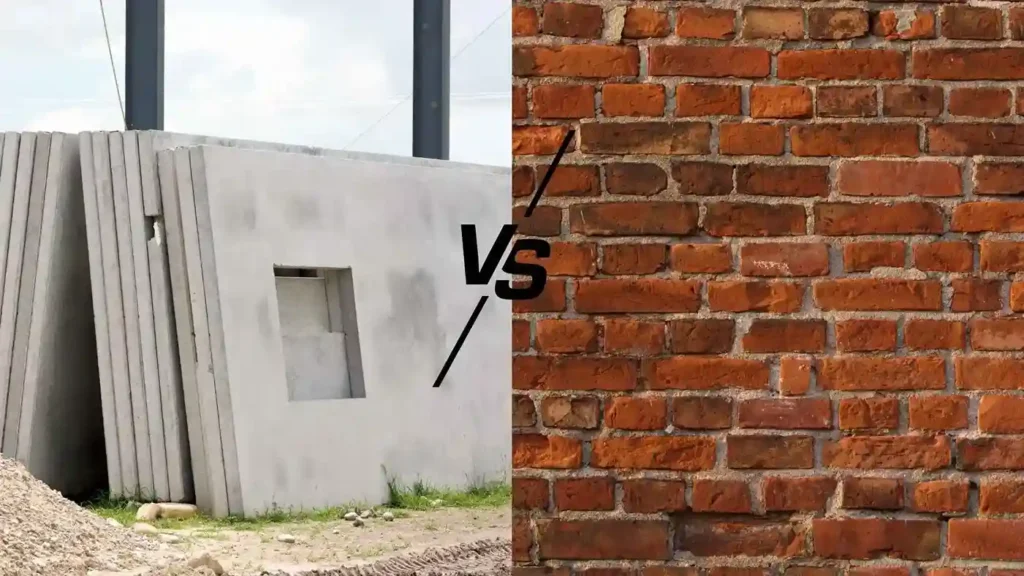
When building or renovating a property, choosing the right materials can significantly impact both aesthetics and budget. A common question among homeowners and business owners is whether concrete walls are more affordable than brick walls. To answer this, we’ll compare their costs and evaluate other factors such as durability, maintenance, and long-term value.
Cost Comparison
1. Material Costs
- Concrete Walls: Concrete is generally more affordable when comparing the base material cost. Made from cement, sand, and water, concrete is produced on a large scale, which keeps prices relatively low. Precast concrete panels or poured-in-place concrete are also economical compared to individual bricks.
- Brick Walls: Traditional bricks tend to have a higher upfront cost due to the labor-intensive manufacturing process. Additionally, bricks are sold individually, which adds up when covering significant wall space. Specialty bricks or custom finishes can drive the cost even higher.
2. Labor Costs
- Concrete: Building with concrete, especially precast panels, often involves less labor since these panels are quicker to install. Poured-in-place concrete does require skilled labor, but the work generally takes less time compared to laying bricks.
- Brick: Brick walls are labor-intensive to construct. Each brick must be laid individually, and achieving a uniform, professional finish takes time and skill. Higher labor requirements make brick walls more expensive overall.
3. Time Investment
- Concrete walls, particularly precast options, offer the advantage of faster installation. The quicker turnaround time can be valuable in both residential and commercial projects.
- Brick walls require more time to complete due to the meticulous process of laying bricks. This prolonged timeline could delay build times and increase labor costs.
Maintenance and Durability
Concrete Walls
- Pros:
- Highly durable and can withstand harsh weather conditions.
- Low maintenance, requiring occasional sealing to prevent moisture infiltration.
- Resistant to pests such as termites.
- Cons:
- Prone to cracking over time, which may require repairs.
- Can look industrial or plain without proper finishing.
Brick Walls
- Pros:
- Timeless aesthetic appeal that adds value to a property.
- Naturally fire-resistant and weather-resistant.
- Minimal cracking compared to concrete.
- Cons:
- Bricks are porous and may retain moisture, possibly leading to mold or mildew.
- Mortar joints need repointing over time, which can be costly.
Energy Efficiency
- Concrete Walls: Concrete has high thermal mass, meaning it retains heat or cool air, making it an energy-efficient choice, especially in regions with temperature extremes.
- Brick Walls: Bricks are also excellent insulators, but their thermal mass is slightly lower than concrete. Adding insulation can improve energy efficiency for both brick and concrete walls, though it may increase the overall cost.
Aesthetic Versatility
- Concrete can be finished in a variety of ways, including painting, texturing, or cladding, to suit your design preferences. However, some people feel its industrial look is not as visually appealing as brick.
- Brick, on the other hand, adds a natural, warm appearance to any structure. Its classic look is often preferred for residential homes or commercial spaces wanting a traditional aesthetic.
Which is Cheaper?
Concrete walls are generally cheaper than brick walls when considering material and labor costs. However, the final cost depends on factors such as the type of concrete (precast vs. poured) and the brick design (standard vs. specialty). While concrete offers a practical, cost-effective option, brick’s aesthetic and timeless appeal may justify the higher cost for some projects.
Final Thoughts
Frequently Asked Questions
Yes, concrete walls are generally cheaper than brick walls due to lower material and labor costs, especially for larger projects.
Material costs, labor intensity, construction time, and regional availability of materials impact the overall cost difference.
Both are durable, but concrete walls often have a longer lifespan and require less maintenance compared to brick walls.
Yes, with finishes like staining, stamping, or cladding, concrete walls can mimic the look of brick or other materials.
Yes, concrete walls are typically faster to build due to simpler construction techniques like pouring or using precast panels.
